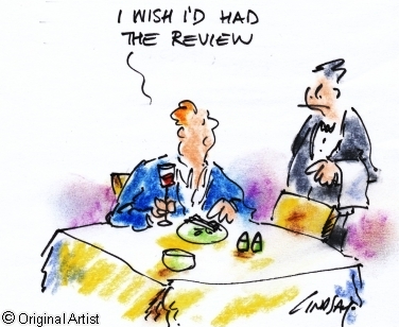 Cartoon by Lindsay Foyle 1. The only reader who cares whether you like an artwork is one who has the exact same taste as you. In other words, no one cares if you like an artwork or not. 2. One of the most overrated qualities in a critic is good taste. It is often a limited and limiting concept that ends up discrediting a lot of artworks that refuse to play by bourgeois or hipster rules. Art does not need to be well made so much as it needs to make well. 3. Avoid any sentence that might be quoted for publicity purposes. Criticism is not advertising, nor is it public relations. 4. Avoid empty rhetorical words such as “good/better/best,” “bad/worse/worst,” and their synonyms. Instead, use words such as “regressive/progressive”, “sexist/feminist”, “racist/anti-racist,” “homophobic/transphobic/queer-positive,” etc. These words carry weight, as they actually mean something. 5. The role of the critic is not to tell readers what is worth their time and money. Criticism is not consumerism. The role of the critic, much like that of the artist, is to create meaning. The critic should not be an informed consumer, but an informed thinker. 6. It is indeed hard to see the forest for the trees, especially when it comes to newer artworks, but that is precisely and imperatively what the critic must do. The role of the critic is to contextualize, to argue why a work is significant or relevant, or not. 7. It is a mistake to believe that good criticism can only be about good artworks. Criticism is a form of thought, and the artwork is not doing the thinking for the critic. 8. Like (hopefully) the artists they review, critics should have political and artistic convictions. These produce meaning, which is what a critic should be seeking. 9. Turn your hate for works you despise for artistic reasons rather than political ones into admiration. These works will haunt you for much longer than the ones you merely like, and works that fail to be remembered also fail to create meaning. 10. Reward risks taken by artists, even if they ultimately fail. There is no point in rewarding those who play it safe and simply copy the success of their predecessors. 11. Do not emulate the style of critics who put out generic reviews for mainstream publications. There is no point in putting out a review that could have been produced just as well by another writer with no personality. If you are replaceable, you will be replaced.
3 Comments
Dorian
1/8/2012 04:55:31 am
You should read this, if you haven't already, I think you'd appreciate what Andy Horowitz has to say about criticism...
Reply
18/8/2013 09:22:52 pm
That was an eye opener. I had criticized the art works of my brother for a long time but never knew that there is a professional side to this. I am happy to know that such words do motivate them a lot.
Reply
Leave a Reply. |
Sylvain Verstricht
has an MA in Film Studies and works in contemporary dance. His fiction has appeared in Headlight Anthology, Cactus Heart, and Birkensnake. Archives
October 2023
Categories
All
|
 RSS Feed
RSS Feed